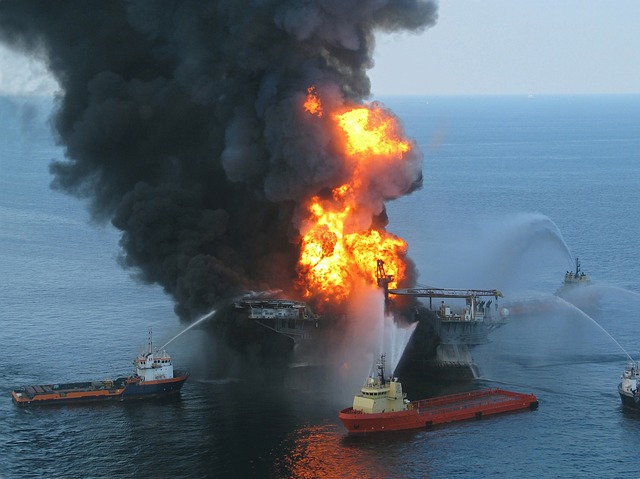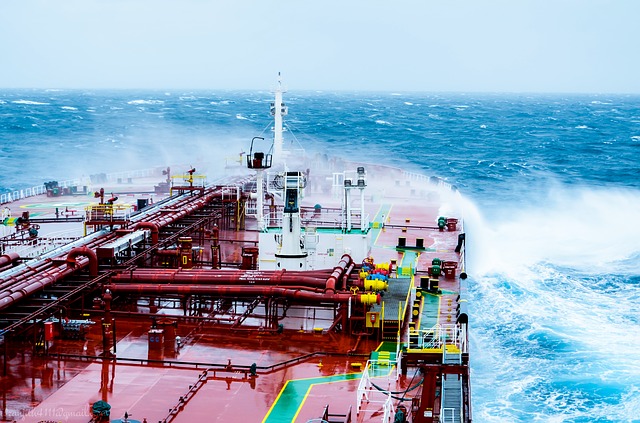Maritime Accidents
As a maritime worker, your unique job responsibilities expose you to many dangerous maritime hazards. Unfortunately, many seamen and maritime workers suffer serious injuries or die because of maritime accidents. These accidents typically result from human error or some other act of negligence while workers are aboard ships or drilling platforms.
Additionally, cruise ship passengers and crew members as well as occupants of a passenger ferry, chartered yacht, or even a friend’s recreational boat can sustain serious injuries while moving about the boat or during a collision.
Different laws apply to maritime workers injured on the job versus passenger vessel occupants who sustain an injury due to a recreational watercraft or cruise ship accident.
It’s important to know what laws apply to your situation and how you can obtain the compensation you need from those responsible for your injury or loss.
Contact an experienced maritime accident attorney near you today for a free consultation on your rights and options to recover damages following a maritime accident or marine casualty.
Common Maritime Accidents
Explosions
While explosions are, fortunately, rare offshore and on vessels, the hydrocarbons and compressed steam that you use can ultimately give way to explosions. Lack of communications about the proper lock out tag out procedures, faulty valves or gauges can also contribute to a hydrocarbon (oil or gas) explosion or a serious steam release.
Fortunately, the Bureau of Safety and Environmental Enforcement (BSEE) almost always thoroughly investigates such serious incidents, making it easier to prove why the explosion should not have happened. According to BSEE, there have been 969 fire/explosion incidents offshore since just 2009. That’s an average of 121 incidents a year.
Lack of communications about the proper lock out tag out procedures, faulty valves or gauges can also contribute to a hydrocarbon (oil or gas) explosion or a serious steam release.
Fortunately, the Bureau of Safety and Environmental Enforcement (BSEE) almost always thoroughly investigates such serious incidents, making it easier to prove why the explosion should not have happened. According to BSEE, there have been 969 fire/explosion incidents offshore since just 2009. That’s an average of 121 incidents a year.
Wire and cable accidents
Marine work often requires that you handle a lot of wires and cables, particularly crane cables or barge wires. These cables and wires become dangerous when they are moved quickly and without warning. Hand injuries are common, and while your company may claim you got into a ‘pinch point’, we find this is often just an effort to improperly blame you for a cable or wire injury. Under the worst circumstances, broken wires and cables can strike you or your co-workers. Our office helped two individuals who were needlessly struck in their heads by a breast wire, causing severe injuries to both.Lifting accidents
Lifting heavy weight all day is usually just a part of your job working offshore or on a vessel. Even vessel captains and rig floor supervisors can be called on to pitch in and help move heavy equipment. Since 2009, there have been 1361 offshore lifting accidents/incidents reported to the BSEE. We have found that most lifting accidents occur in one of two ways:- Either the individual helping you lift or move the object doesn’t properly carry his share of the weight, or
- You are required to lift a weight that is too heavy or in an awkward position.
Rig floor accidents
Drilling rig floors are incredibly dangerous. Drill pipe, slips, air hoists, elevators and everything around the rotary can become dangerous equipment. Everyone on your rig floor needs to work together as a team. Even though you may be pulling slips with two other floor hands, your driller or assistant driller is also part of the job, operating the brake. And speed is often stressed over safety on the rig floor. The hole has to get finished by a certain date or your company falls behind. Accidents on the rig floor commonly happen due to slip or trip hazards on the rig floor, improper operating of the brake, elevators or a hoist, or a co-worker’s failure to properly help with lifting equipment.Transferring accidents
As a maritime worker, you are often required to transfer from one location to another throughout your work. This may involve the use of a personal basket, a gangway, or just jumping from one vessel to another vessel or barge. Personal basket accidents are extremely common. And even though the law requires that your company give you ‘safe ingress and egress’ on and off of your vessel, many vessel transfers still injure thousands of workers every year. Sea conditions, deck conditions, and proper communications are all critical factors in your ability to safely transfer.
Slip and trip accidents
While slip and trip accidents may seem simple, there are actually very technical ways to investigate if the deck, steps or ladder rungs were safe at the time of your accident. First, all marine decking or footholds should have proper non-skid protection. This can be anything from old-fashioned ‘walnut shells’ in the paint of a tugboat, to more commercial products that are applied to the deck or steps. Non-skid protection can be measured by testing the dynamic coefficient of friction (DCOF) across the surface. Steps and ladders must have proper ‘rise to run’ ratios, meaning the steps are properly spaced and don’t feel awkward as you climb them. Steps and ladders may also need faceplates or lipping attachments across the front of them to serve as slip protection. Your slip and fall injury is often the result of design errors that occurred before you actually suffered your fall.What Can You Do If You Suffered Injuries on a Cruise Ship or Passenger Vessel?
If you suffered injuries on a cruise ship or passenger vessel, there are several steps you can take to protect your rights and seek compensation for your losses:
- Seek medical attention: Your health and well-being should be your top priority. Visit the ship’s medical facility or a doctor upon disembarking to document your injuries and receive treatment.
- Report the incident: Notify the ship’s crew or management about the incident as soon as possible. Fill out an accident report form and obtain a copy for your records.
- Gather evidence: Take photos of the accident scene, your injuries, and any factors that may have contributed to the incident. Collect witness contact information and statements if possible.
- Keep documentation: Save all documents related to the incident, including medical records, accident reports, and correspondence with the cruise line.
- Be cautious when communicating with the cruise line: Avoid signing any documents or accepting settlement offers without consulting a lawyer, as this may waive your right to pursue further legal action.
- Consult with a maritime lawyer: Cruise ship injury cases are governed by complex maritime laws. Consult with an experienced maritime lawyer who can help you understand your rights, navigate the legal process, and seek fair compensation for your injuries.
- File a claim within the statute of limitations: Maritime law generally imposes a strict time limit for filing a claim, often within one year of the incident. Discuss the applicable statute of limitations with your lawyer to ensure your claim is filed on time.
Remember that the specific steps and legal options available to you may vary depending on the circumstances of your case and the laws that apply. Speaking with a qualified maritime lawyer is crucial to protecting your rights and seeking the compensation you deserve.
What Can You Do If a Marine Accident Killed a Close Family Member?
If a marine accident resulted in the death of a loved one, you may have several legal options available to seek justice and compensation. The specific legal path will depend on the circumstances of the accident and the deceased person’s relationship to the vessel or employer. Here are some potential legal options:
- Jones Act claim: If your loved one was a seaman (a worker who spent a significant portion of their time working on a vessel) and died due to negligence of their employer or a fellow crew member, you might be able to file a claim under the Jones Act. This federal law allows seamen or their surviving family members to seek compensation for damages, including lost income, funeral expenses, and pain and suffering.
- Death on the High Seas Act (DOHSA): If the death occurred more than three nautical miles from the shore of the United States due to negligence or unseaworthiness of the vessel, you may be able to file a claim under DOHSA. This law allows surviving family members to recover pecuniary damages, such as lost financial support and funeral expenses.
- Longshore and Harbor Workers’ Compensation Act (LHWCA): If your loved one was a maritime worker but not a seaman (such as a longshoreman or harbor worker) and died due to a work-related incident, you might be eligible for benefits under the LHWCA. This federal law provides compensation for surviving family members, including death benefits and funeral expenses.
- General Maritime Law: Under general maritime law, you may be able to file a wrongful death claim if your loved one’s death was caused by the unseaworthiness of the vessel or negligence of the vessel owner or operator.
- State wrongful death laws: Depending on the location and circumstances of the accident, you may also be able to file a wrongful death claim under state laws. These laws vary by state, so it’s essential to consult with an attorney familiar with the laws in the relevant jurisdiction.
To determine the best course of action for your specific situation, consult an experienced maritime lawyer who can evaluate your case, explain your legal rights, and guide you through the process of seeking compensation for your loss.
Preventing Maritime Accidents
According to a basic safety principle, any dangerous conditions or potential accidents should be approached in three ways.- First, if the danger can be ‘designed’ out of or eliminated from the job, it should be.
- If not, the danger should be lessened as much as possible through safety guards or work procedures.
- Finally, everyone must be warned about the possible danger.
Contact a Maritime Accident Lawyer Today
The New Orleans maritime accident lawyers at The Young Firm have extensive knowledge and experience with all areas of maritime law. Our attorneys have assisted thousands of injured clients and those who lost family members in marine accidents in getting the full and fair compensation they deserve.
Contact us today for a free consultation and learn how we can help you and your family through this difficult and uncertain time. We promise to take an active interest in your case and fight hard to maximize your financial recovery.
More resources on maritime accidents:- The Top Fifteen Causes of Shipyard Crane Accidents: Who Is Responsible For Your Injury
- Are You Well-Rested? Fatigue Considered a Factor in Maritime Casualties
- NTSB Warns Cell Phone Use May Cause Serious Maritime Accidents
- Did Someone Else Cause Your Gulf of Mexico Maritime Accident?
- All Maritime Accident-Related Articles

